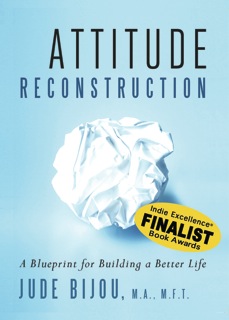Were your parents good communicators? Does your communication style feel threatening to others? Do others avoid sharing personal information with you? Are you often unable to get your message across? We all struggle at times to really say what we mean.
We just weren’t taught about how to communicate constructively regardless of whether we’re talking with our spouse, children, friends, acquaintances, or business associates. Based on research and thirty years in private practice, I have come to find that four violations create all the misunderstandings and ensuing hurt, alienation and confusion we experience when communicating with others. And all good communication, from the bedroom to the boardroom, boils down to following four simple rules.
By following the rules and refraining from violations, anyone can communicate about any topic effectively and lovingly. Not surprisingly, the violations and rules are opposites that balance each other.
1. The First Violation is to tell other people about themselves (without permission). This includes blame, sarcasm, teasing, attacking, and finger-pointing. Telling others about themselves only creates separation and alienation. The First Rule is “talk about yourself.” This is our true domain. We’re best to share what we feel, think, want, and need. This brings closeness, love, as we reveal information about ourselves.
2. The Second Violation is over-generalizing. This can take the form of sweeping conclusions, abstractions, and labels, and using words like “always” and “never”, or bringing in other topics only barely related to the subject at hand. This is confusing, as we don’t hear about the real concern. The Second Rule is to stay specific. That’s what we do with music, architecture, engineering, cooking, math, physics, and computers; and what we must do when communicating. When we speak about in concrete terms, others can understand what we’re saying – the topic, the request, the reasons.
3. The Third Violation is being unkind. Focusing on what’s not working and on what we don’t like does not further a conversation but produces anger, negativity, and feelings of separation. The Third Rule, then, is kindness. Being kind fosters love. It can take the form of offering compassion, appreciations, praise, gratitude, and focusing on the positive.
4. The Fourth Violation is not listening. We know how that feels. Not good. Automatic interruptions, offering solutions, debating, and making wise-cracks don’t truly acknowledge the speaker but instead further our own agenda. The Fourth Rule is simply to listen. That means we must focus our complete attention on the person who is speaking and seek to truly understand what he or she is saying. Listening brings connection. (I playfully tell clients that duct-tape works wonders!)
Resorting to the violations is so ingrained that changing these habits can feel nearly impossible. Not so. With some consistent practice, we can get the hang of it. The idea is to stop ourselves when we notice we’re telling others about themselves, complaining about the situation at hand, talking in global abstractions, or not really listening. It’s hard, but if we catch ourselves, we can pause and take a breath. Then we can locate the topic at hand, determine what is true for us about it, and then speak it out.
Here are some examples of two different ways to communicate about the same topic.
You never help with the dishes ~~ I need some help right now.
You’re monopolizing the conversation ~~ I have something I want to say.
My parents are so mean ~~ I’m upset that my parents wouldn’t give me the car tonight.
You always say stuff like that ~~ I got hurt when you called me incompetent.
The four violations cause communication breakdowns, distance, and confusion. The four rules, talk about your own experience, use specifics, focus on kindness, and listen, create feelings of empowerment, understanding, connection, and forward movement.
About the Author
Jude Bijou is a licensed marriage and family therapist (MFT), educator and author of Attitude Reconstruction: A Blueprint for Building a Better Life (Rivera Press, 2011). A practicing psychotherapist for thirty years in Santa Barbara, California, Jude is the daughter of pioneer behavioral child psychologist, Sidney W. Bijou. For more information, visit: http://www.attitudereconstruction.com/

